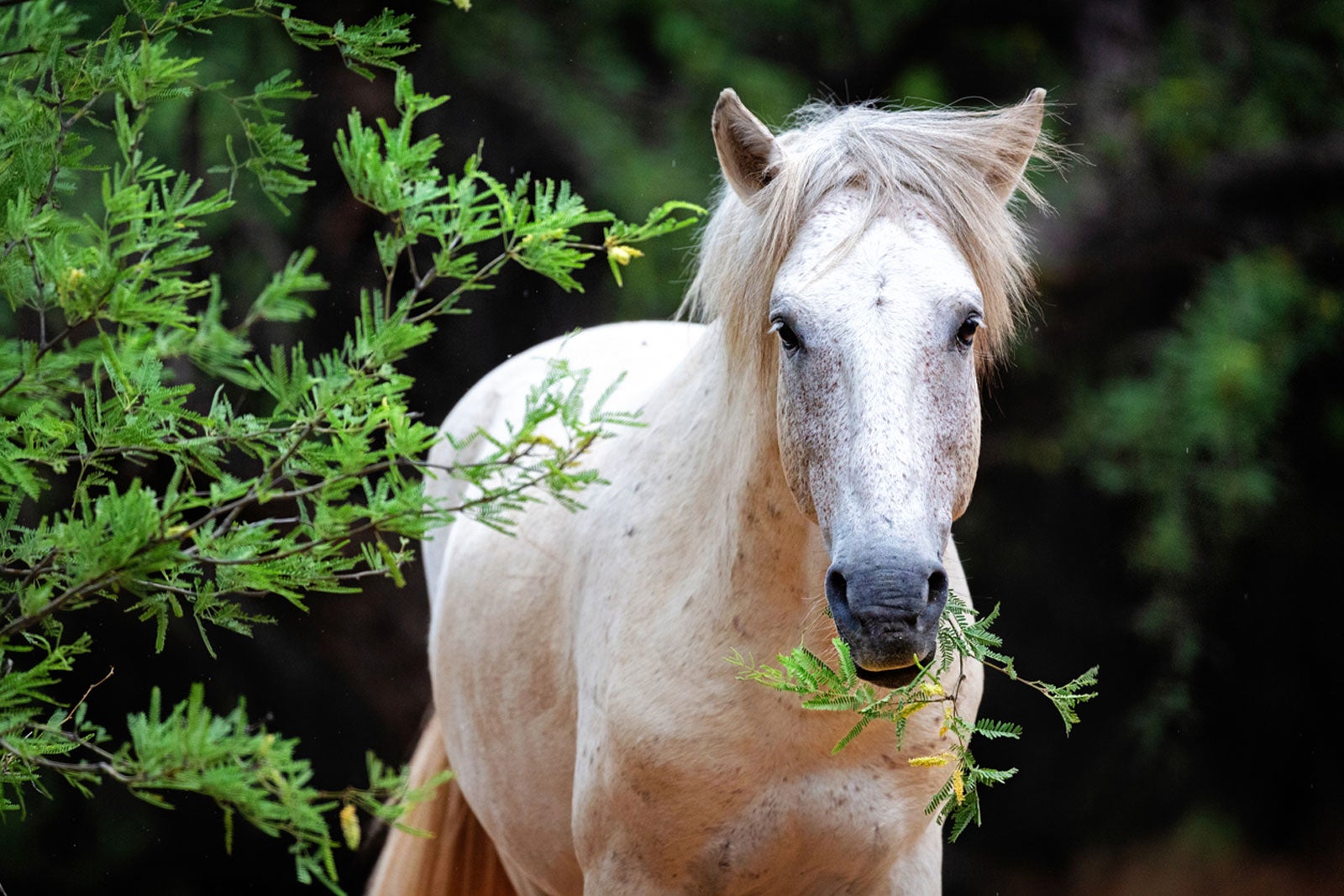Plants Poisonous To Horses: Common Plants That Are Poisonous To Horses


Sign up for the Gardening Know How newsletter today and receive a free copy of our e-book "How to Grow Delicious Tomatoes".
You are now subscribed
Your newsletter sign-up was successful
Horse owners, especially those new to horses, often wonder what plants or trees are poisonous to horses. Trees and plants that are poisonous to horses can be very dangerous and identifying the harmful plants is paramount to keeping horses happy and healthy. Let's take a look at some of the most common trees and plants poisonous to horses.
Common Plants Poisonous to Horses
There are many plants that have been identified as being toxic to horses. This is a list of some of the most common poisonous plants and is not, in any means, exhaustive:
- Alsike Clover
- Azalea
- Bracken Fern
- Buckwheat
- Buttercup
- Castor Bean
- Chokecherry
- Ground Ivy
- Horse Chestnut
- Locoweed
- Lupine
- Milkweed
- Mountain Laurel
- Oleander
- Poison Hemlock
- Ragweed
Common Trees Poisonous to Horses
There are many trees that have been identified as being toxic to horses. This is a list of some of the most common poisonous trees associated with horses:
How Do I know if my Horse Eats a Poisonous Plant?
Some plants that are poisonous to horses contain toxic compounds that can seriously injure or kill, even in small amounts. Other plants are known to bring about weight loss, weakness, and a reduction in performance. Keeping a keen eye on horses and checking for any signs of distress daily will help you to identify problems before they become life-threatening.
How to Prevent Poisoning
Once you know what is poisonous to horses, thoroughly check your horse pasture and paddock area for any harmful plants and trees. Be sure to check both sides of the fence line and identify all plants growing within reach. If you spot anything suspicious, do not allow your horses to graze in the area until you have removed the plant or tree. Young or ambitious horses, especially, need to be watched very carefully. You should also know where your hay comes from. Many toxic plants can be found in hay that is dried and this too can be very dangerous. Don't be afraid to ask questions from your hay supplier to bring you peace of mind when feeding your horses. Do not allow horses to overgraze pastures and never turn a hungry horse out into a new pasture. Always provide plenty of fresh water for horses and be sure to consult your veterinarian immediately if you suspect that your horse has ingested a toxic plant. Horses and poisonous plants are not a good combination and taking the time to study which plants and trees are toxic and managing your pasture properly could be a matter of life and death.
Sign up for the Gardening Know How newsletter today and receive a free copy of our e-book "How to Grow Delicious Tomatoes".

Susan Patterson is a master gardener, author, and educator with more than 30 years of hands-on experience growing vegetables, herbs, and medicinal plants. She specializes in edible gardening, sustainable living, and the practical use of plants for health and wellness. A longtime instructor with the West Virginia Herb Association, Susan is passionate about teaching others how to grow, preserve, and use their own food. Through her books, articles, and her work with Earthenmamma, she empowers readers to cultivate thriving gardens – and healthier lives – wherever they live. She resides in Arizona.